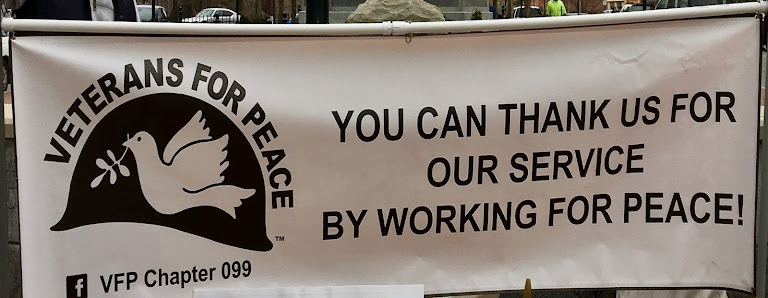(rejected by the Mountain Xpress -- not of local interest)
We deeply regret this tragic loss of life.
We deeply regret this tragic loss of life.
--U.S. Army Gen. Stanley McChrystal, after an airstrike killed a dozen civilians on Feb. 14 in Afghanistan
We are extremely saddened by the tragic loss of innocent lives.
--U.S. Army Gen. Stanley McChrystal, after an airstrike killed two dozen civilians on Feb. 21 in Afghanistan
When in doubt, empty the magazine.
-- Buncombe County Commissioner Bill Stanley, speaking on Feb. 24 to a National Guard unit heading to Iraq, as reported in the Mountain Xpress
Human cultural behavior is often based on habit. Over time, habit can become tradition and tradition can become sanctified into ritual. A problem with traditions is that we rarely take the time to step back and reassess them in the context of a changing world or the light of new information. A problem with rituals is they become sacrosanct—holy and not to be criticized or tampered with.
We have a tradition of sending young people off to war. We do this because our leaders tell us this is necessary for our security. There might have been a time when our security was in fact threatened and our leaders were telling us the truth. In 1941, President Roosevelt asked Congress to declare a state of war in the wake of an attack against an American military installation. This was the last time that our country has officially and legally been in a state or war. Now, instead of responding to aggressors by declaring war, we have become the aggressors and we call it “war.” (Yes, we are the aggressors—no Iraqi of Afghan attacked any American until we invaded their countries.)
Nonetheless, we continue to send our young folks off to “war”–Korea, Vietnam, Iraq, Afghanistan, not to mention Grenada and other lesser known threats to national security. It’s a habit. Leaders say, “War”; young folks go off. No questions.
We even ritualize it. We have ceremonies where we say goodbye to loved ones and send them off to “war.” Generals and colonels proffer platitudes and politicians provide sage advice. Such was the case reported in the March 3rd Mountain Xpress: “Asheville-based National Guard unit heads to Iraq.” Evidence of the ritual nature of this event is that it took place at a Christian church. (I personally have a difficult time reconciling Jesus’ teachings with sending troops off to war, but so it goes.)
But perhaps we should take a moment to examine this tradition and this ritual in the context of a changing world and in the light of new information. What’s changed in the world is the nature of war. War used to be a conflict between armies on a battlefield. Over the course of time and especially with advances(?) in the technology of warfare, civilians—innocent civilians—increasingly are the casualties, even the targets, of war and populated cities are the battlegrounds. What’s more, the conflict is no longer between armies. We are fighting—our leaders tell us—terrorism. That’s a concept, a tactic; it’s not an enemy.
Mr. Stanley’s words might have made more sense in another age, a time when the worst outcome of a doubtful action would be casualties among comrades—“friendly fire” as we euphemistically call it now. But today, emptying a magazine in conditions of uncertainty is most likely to result in the killing or wounding of women and children—“collateral damage” as our leaders like to say.
While the senseless carnage is enough reason to give pause, consider that each civilian maimed or killed has friends and relatives whose hearts and minds will not be won over to our side. Practically speaking, the “wars” we’re waging in Iraq and Afghanistan are both counterproductive and insane.
We need to ask basic questions: What is war? Who is the enemy? Is this old tradition of sending young people off to “war” still valid? Do we dare to cast doubt on the ritual sendoff ceremony? And more questions: Is military force the antidote to terrorism? Or does it just create more terrorists? Can we trust what our leaders say? What are their real motives? Are there better ways to insure our security? Has war outlived whatever usefulness it may have once had?
Finally, we’re told national security is the goal. But Americans would feel much more secure if we all had health care and jobs—and if the good people of our National Guard were safe at home, ready to respond when emergencies and natural disasters endanger our citizens.
Kim Carlyle is president of Veterans For Peace WNC Chapter 099 (http://vfpchapter099wnc.blogspot.com/), editor of the War Crimes Times (http://warcrimestimes.org/), and lives near Barnardsville.
